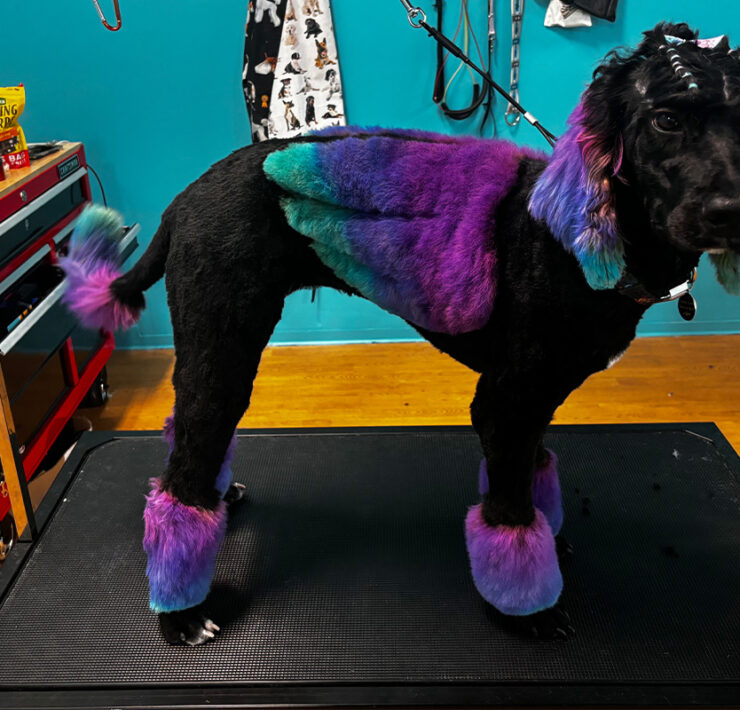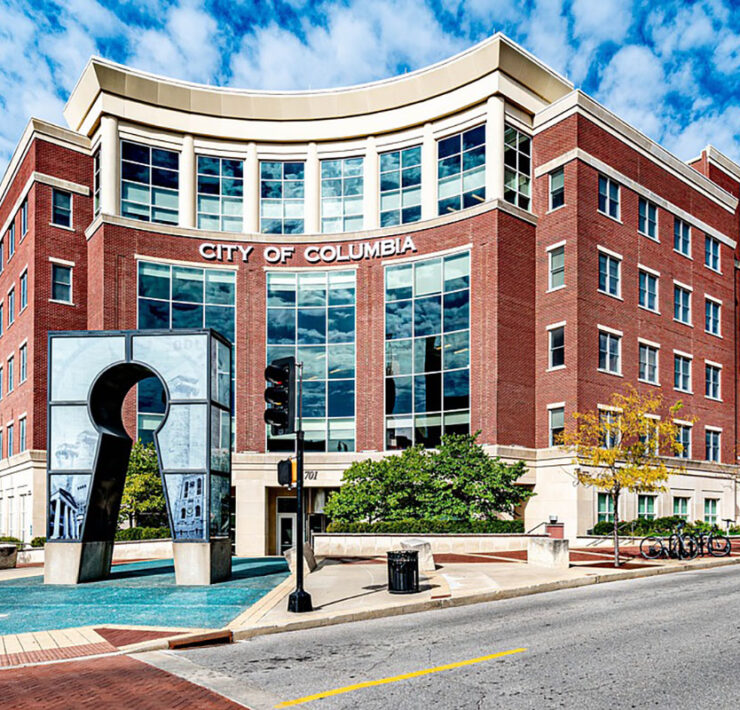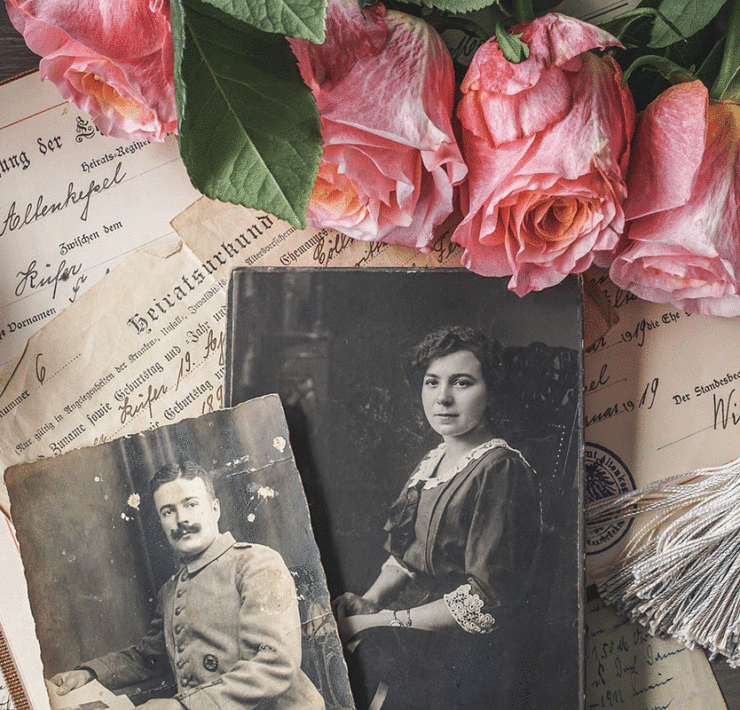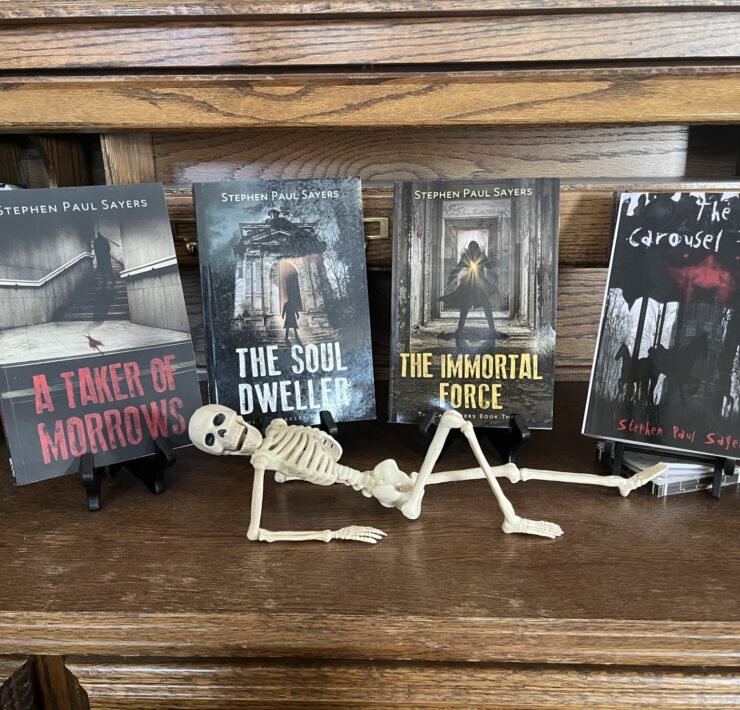Lights, Camera, Action!

Columbia’s filmmakers shoot for creative collaboration.
Matt Schacht’s filmmaking career was sparked in ninth grade history class, before the digital age, back before the ubiquitous cell phone turned anyone with a hefty dose of creative energy into a possible cinematographer.
Making an historical reenactment of an ancient Roman battle with his friends on the weekend was cool, no doubt. But what made it truly old-school?
“I edited the video on two VHS players at home,” says Matt, 36, a native of Johnson City, Tennessee.
Zoe Shedd is graduating from MU in May with a degree in documentary journalism. Zoe echoes the refrain from many of her filmmaking colleagues that Columbia’s smaller size — in comparison to L.A., Chicago, or even Kansas City — is ideally suited for close collaboration.
“You’re able to build strong relationships and rely on one another,” she adds. A little over a year ago, Zoe connected with Matt Schacht’s Peace Frames Productions and started freelancing on commercials, music videos, and short films in a variety of production roles.
Columbia native Chelsea Myers, who began Tiny Attic Productions in 2012, is listed as a “go-to resource” by many of her filmmaking colleagues. She headed video production for Ragtag Film Society and True/False Film Fest for 10 years and says filmmaking has been “a lifelong obsession,” pointing to her toddler years when she “constantly tried to grab the family camcorder out of my dad’s hands.”
Chelsea also echoes what many others have said about the value of being self-taught or educated from working experience, which Columbia now offers in spades to those who take the initiative.
Local filmmakers vary in their approach to voice or artistic style. Aaron Phillips, firmly entrenched in Columbia’s photo and film community though just five and a half years removed from life in Jackson, Mississippi, says the highest achievement he could ask for “is that people walk away from my work and feel they experienced empathy and saw something beautiful.”
Jordan Lundy explains that his camera work often has “a little bit of quirkiness” — looking for ways to accentuate angles and “subtly motivated lights” to achieve balance. With directorial pieces, “I like getting laughs,” he says, using humor to help people relax and engage more. A recent project — working the timing of the Missouri Symphony Country Meets Classical commercial to fit in 30 seconds — was especially fun.
Perhaps not surprisingly (these are gifted artists, after all) the most difficult challenges and most rewarding outcomes of making films in Columbia are often closely related, if not one and the same. For instance, when Michael Coleman is asked what the hardest part of filmmaking is, he says: “Everything. And I love it.” More specifically, making films in the heart of the Midwest, where local and state infrastructure for filmmaking is lacking, “is a leap of faith with no real guarantee of exposure or financial return.”
When it comes to advice for aspiring filmmakers, Columbia’s community of craftspeople is especially generous. Lizzie Germann cautions both veterans and newcomers to heed the need for strong script writing.
“The prettiest drone shots and best lenses won’t save a bad script, so start there and don’t rush to lock your script because you’ll be kicking yourself later if you do,” she says.
And don’t take for granted the camaraderie and cohesiveness of the local filmmaking community, or the community’s support for the craft. Kevin Duggin came to Columbia from L.A. 11 years ago, and one of his first projects here was an eye-opener. After unloading all their gear outside the house where they were shooting, a neighbor approached and asked what his team was up to.
Later that day, she returned with homemade cookies for the crew.
“I can say, having worked in Los Angeles for seven years, I never experienced that,” Kevin says.
Now learn more about local filmmakers Matt Schacht, Zoe Shedd, Chelsea Myers, Aaron Phillips, Jordan Lundy, Michael Coleman, Lizzie Germann, and Kevin Duggin.
Matt Schacht
Producer and Owner of Peace Frame Productions (Columbia COVID doc, Missouri Symphony [MOSY] doc, music videos, commercials, narrative films, weddings)
peaceframeproductions.com
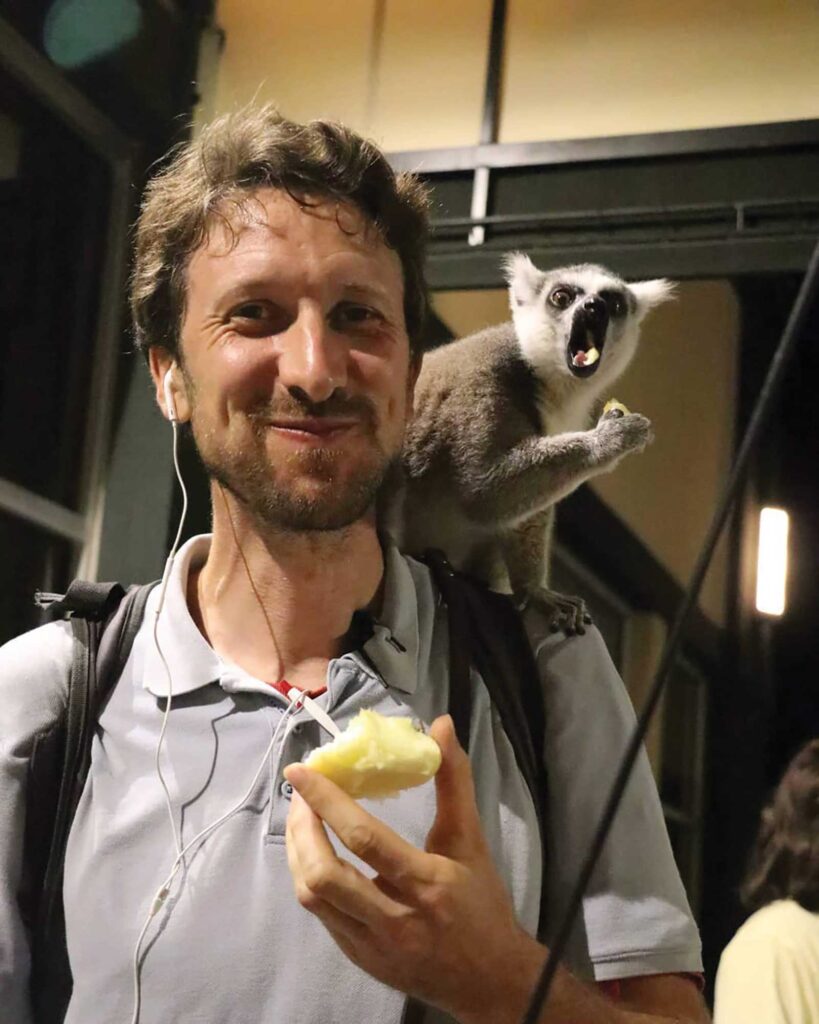
Other jobs/roles in Columbia: Adjunct teacher at MU Journalism School, crew chief for the True/False Film Festival, and studio manager at Vidwest Studios and Columbia Access Television
Describe some of your current projects. Producing a documentary for MOSY celebrating their 50th anniversary (with surprise guest COVID-19). Feature release April 10, 2021. Organizing the 2021 CoMo Shorts Filmmakers Showcase being held September 23 to 25, 2021. I’m producing a buddy’s dream project called the “A Fox and a Squirrel.” The short film is about an overworked single mother telling her 7-year-old son a bedtime story about her work day. The concept is The Office meets “The Princess Bride.” We’re filming that July 2021 in Columbia. We will be sharing a casting call for local actors soon.
What is the most challenging part of filmmaking? It depends on the shoot. If you’re filming in freezing temperatures in the Missouri wilderness, then cold might be the challenge. If you’re filming on a tight schedule, then time might be the challenge. If you’re assembling a new film crew, then communication and finances might be the challenges. As film professor Chase Thompson likes to say, “Films don’t want to be made.”
How does our community show its support for your craft? Columbia is a filmmaker’s haven. We have so much [in terms of] talent, equipment, and locations. We lack an established industry and well-financed projects.
Describe the support and/or collaboration within the filmmaking community here. Filmmakers are communal. We survive in groups. Our phone address book is one of our most precious commodities. It’s difficult to make a film by yourself (although not impossible).
What advice do you have for aspiring filmmakers? Make films. Make mistakes. Find people who are good at making films. Make films with them. Then make films with people you get along with. (Try not to go into debt to pay for film school unless you have a plan.)
Zoe Shedd
Producer and Assistant Director (Student at Mizzou, narrative films, commercials, music videos, documentary)
zoeshedd.visura.co
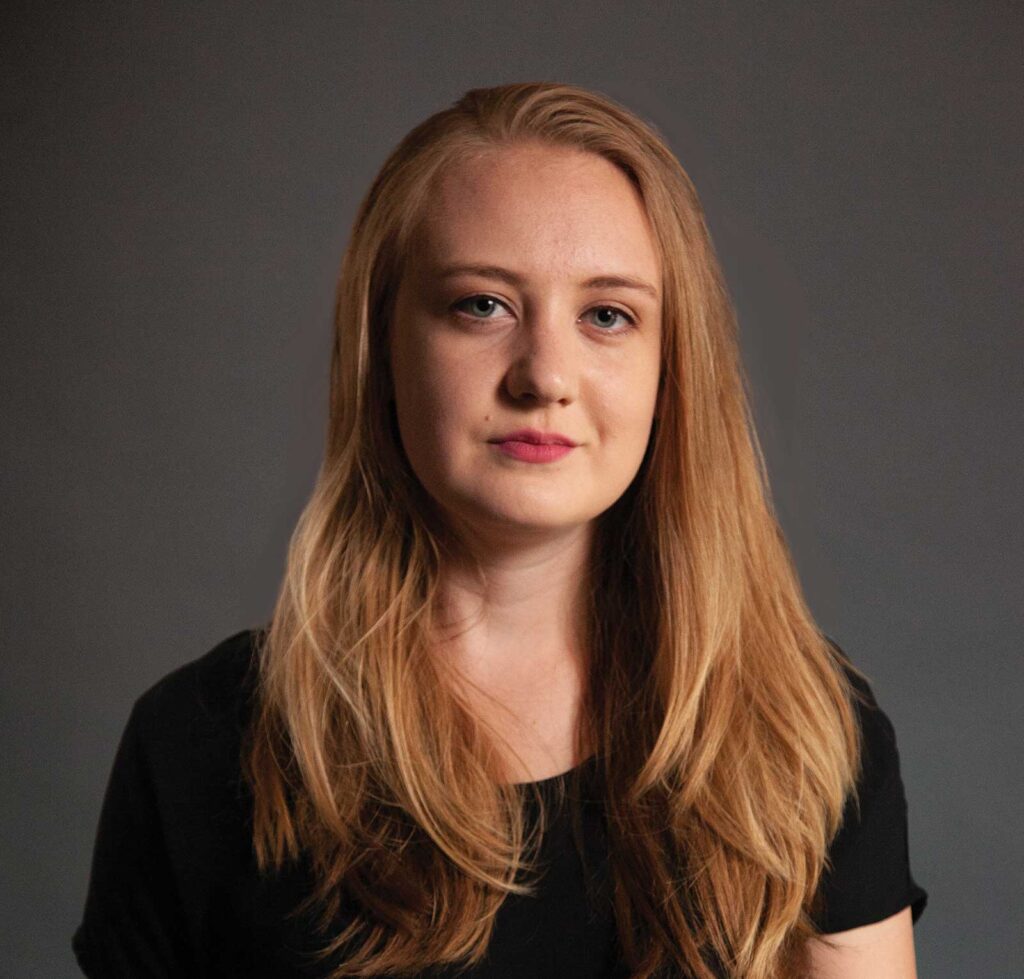
When and how did you get started in filmmaking? I got my start in the filmmaking community through MU’s student organization Shot Reverse Shot, where I learned about production roles my freshman year. By my sophomore year, I was the president of the organization and an executive producer of their webseries Down the Rabbit Hole. My junior year, I started freelancing for Peace Frame Productions and Spectrum Studios on commercials, music videos, and short films in a large variety of production roles such assistant producing, production coordinating, script supervising, and assistant directing.
How much of your craft is self-taught? I would say most of my craft comes from hands-on experience, but the only reason I was able to be successful in this was because of my mentors in the Columbia film community.
Describe some of your current projects. Assistant directing the short film “A Fox and a Squirrel,” directed by Columbia filmmaker Jordan Lundy; directing a true crime documentary short (title still in progress); directing a documentary on human trafficking (in pre-production). Recently I also had the opportunity to work as a production assistant for HGTV’s House Hunters and Travel Channel’s The Holzer Files.
What is the most challenging part of filmmaking? Sometimes it’s finding the perfect location, other times it’s making a schedule that works for everybody, and other times it’s dealing with a problem on set that you just could never have foreseen. Things happen in film, and you just have to always be prepared to come up with a creative solution to keep the project moving.
What advice do you have for someone who wants to learn your craft? I would tell someone who wants to begin making films to just go for it. There is a whole community of people who are willing to guide and support you if you take the initiative.
Chelsea Myers
Director and Director of Photography (documentaries, animation, narrative films, live music, shoots for Greenhouse Theater Productions, True/False Film Festival)
tinyatticproductions.com
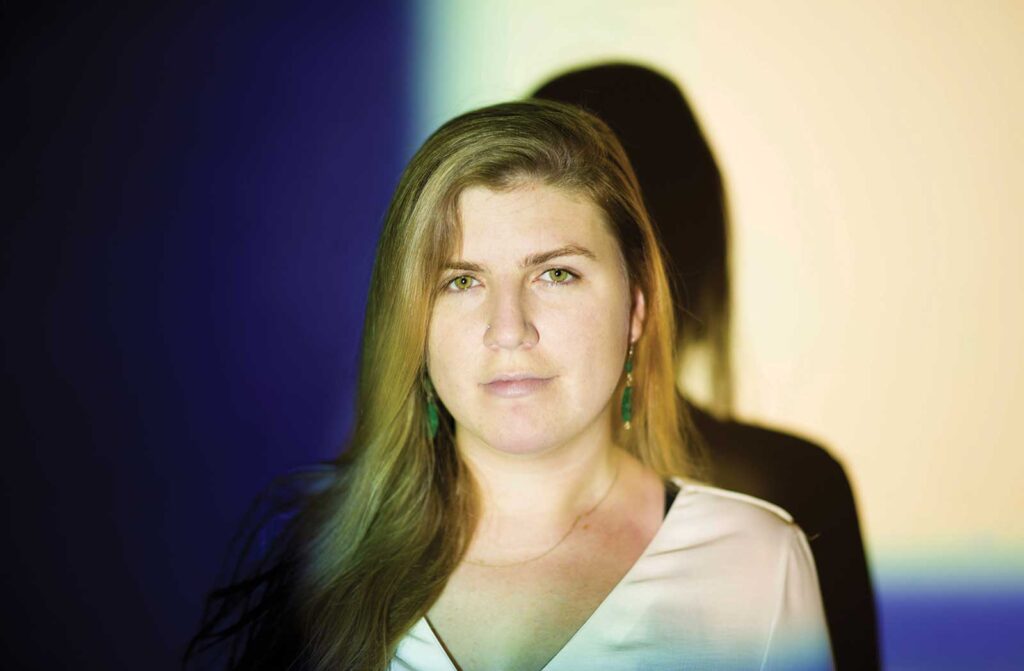
Other jobs/roles in Columbia: Tiny Attic works with a handful of local nonprofits. I’m a curator for the various Vidwest festivals — this year, that’s CoMo Shorts. I also collaborate with Wil Reeves of Centro Cellar Studio on a live music video series called Cellar Attic.
Family/significant other: I am married to the remarkable Josh Wright.
When and how did you get started in filmmaking? Studying multimedia at the University of Westminster in London really sealed my fate. I was fortunate enough to have a circle of extremely passionate colleagues there. We all fueled each other to create then and still do now.
Describe some of your current projects. One independent project is a feature documentary about local celebrity and powerhouse Elizabeth Braaten Palmieri, co-founder of Greenhouse Theatre Project.
How does our community show its support for your craft? There are a number of business owners and individuals who generously share their time and space with filmmakers here. A lot of short films would never have been able to grow legs past the idea phase without these people. However, Columbia as a whole could be doing a lot more to aid locally produced films.
Describe the support and/or collaboration within the filmmaking community here. Whether it’s lending a hand or a camera, we all do whatever is in our means to help each other realize our dream projects. A group of local filmmakers is launching the Vidwest Digital Storytelling Workshop this summer, which is specifically created for young people without access to camera gear.
How do you compare Columbia’s filmmaking community to other communities? Columbia’s filmmakers have to work against more obstacles than larger cities. I’ve been fortunate enough to collaborate with teams in several international locations, and in this city, we don’t have as many grants or financial opportunities. It’s a real grassroots effort here.
Aaron Phillips
Director of Photography (MOSY Children’s Series, documentaries, MOSY documentary, music videos, narrative films, art)
aaronphillipsvisuals.com
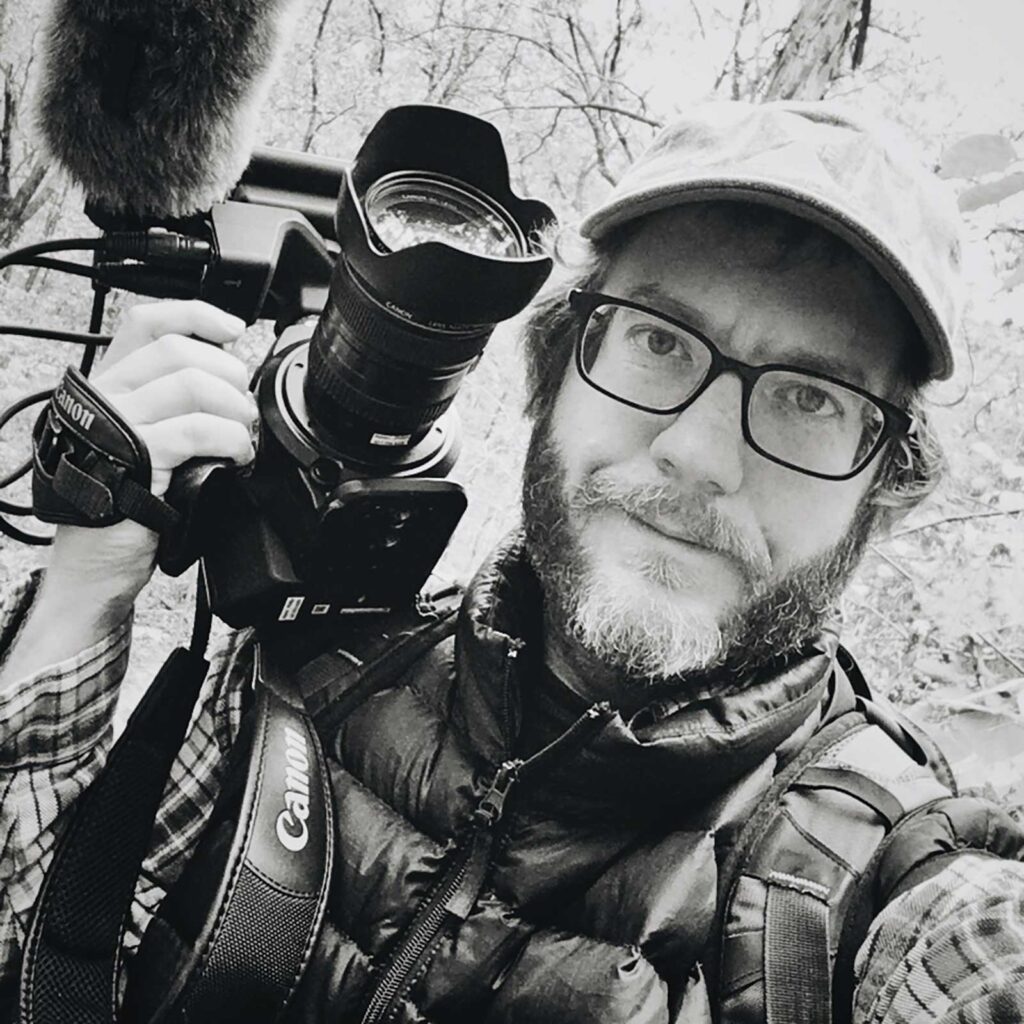
Other jobs/roles in Columbia: I’m involved with Vidwest and the reboot of Columbia Access TV.
How much of your craft is self-taught? All is either self-taught or learned from other filmmakers, directors, gaffers, and producers.
Describe some of your current projects. I am deep in the post-production stage of a documentary for the Missouri Symphony in honor of their 50th anniversary.
Plans for the future? I enjoy collaborating with the filmmaking community here in Columbia and love flexing my creative muscles on narrative and music video projects, but my heart is drawn to documentary, especially stories in the South. There is much beauty, light, and hope within the textures of the South, even though it is often caged in its struggle with its dark past.
Describe the support and/or collaboration within the filmmaking community here. It’s a smaller community and we often pick each other’s brains about our edits or ideas. My closest friends in Columbia are in this group. Moral support is sometimes just as important as knowing how to light something or move a camera.
What advice do you have for aspiring filmmakers? Practice, practice, experiment, and practice some more. The best camera is the one that you have on you, even if it’s only a smart phone. I’ve shot a full short film on an iPhone, and it looked pretty great. Most of all, light is key. If you can understand light, you can make beautiful images nearly anywhere.
Megan Casady
Director of Photography (Missouri abortion legislation documentary, documentaries, music videos, commercials, narrative films, art)
megancasadyphotography.com
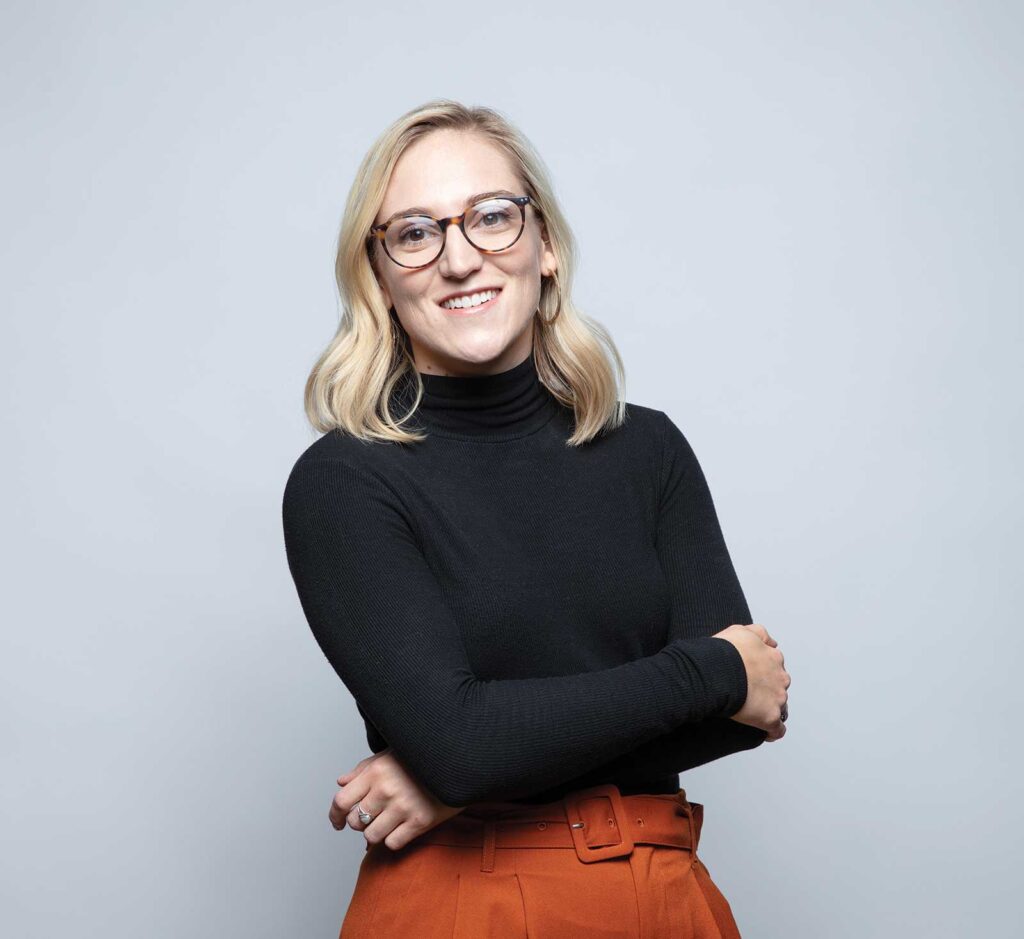
Other jobs/roles in Columbia: COMO Magazine and Columbia Marketing Group staff videographer; marketing director for CoMo Shorts.
When and how did you get started in filmmaking: Freelancing with Peace Frame Productions. All of my craft is self-taught.
What are some of your current projects? A documentary about Missouri abortion legislation. Working title: “Going Dark.”
What is the most challenging part of filmmaking? Recognizing my own biases and how they frame my own work.
The most rewarding aspect of filmmaking? Sharing others’ stories and feeling like I’m making an impact for things that are important in the world.
How would you compare Columbia’s film scene to other communities? I think the average person thinks the Columbia film community is small, or directly related to True/False, but it’s actually quite broad in numbers, skill levels, and types of projects. It’s also pretty tight-knit, but fairly easy to tap into, unlike bigger cities.
How does our community show its support for your craft? Showing up to screenings and funding filmmaker’s projects.
Describe the support and/or collaboration within the filmmaking community here. Filmmakers supporting each other’s films, having film festivals, or creating opportunities to show our work. Oh, and funding projects.
Does your work have a particular voice, a style or some feature that makes it uniquely you? Overall, my style is documentary, but it’s also more than that, and I think that’s something I’m still trying to understand. I like to push my own boundaries to keep making progress in my career, and I want to keep my perspective open to whatever may come.
What advice do you have for aspiring filmmakers? Meditate on what compels you to tell stories. Whether it’s narrative or documentary or experimental, it’s important to understand ourselves first as people so we can better understand others.
Jordan Lundy
Gaffer and Director of Photography (commercials, narrative films, Mizzou sports, music videos)
jordanlundy.com
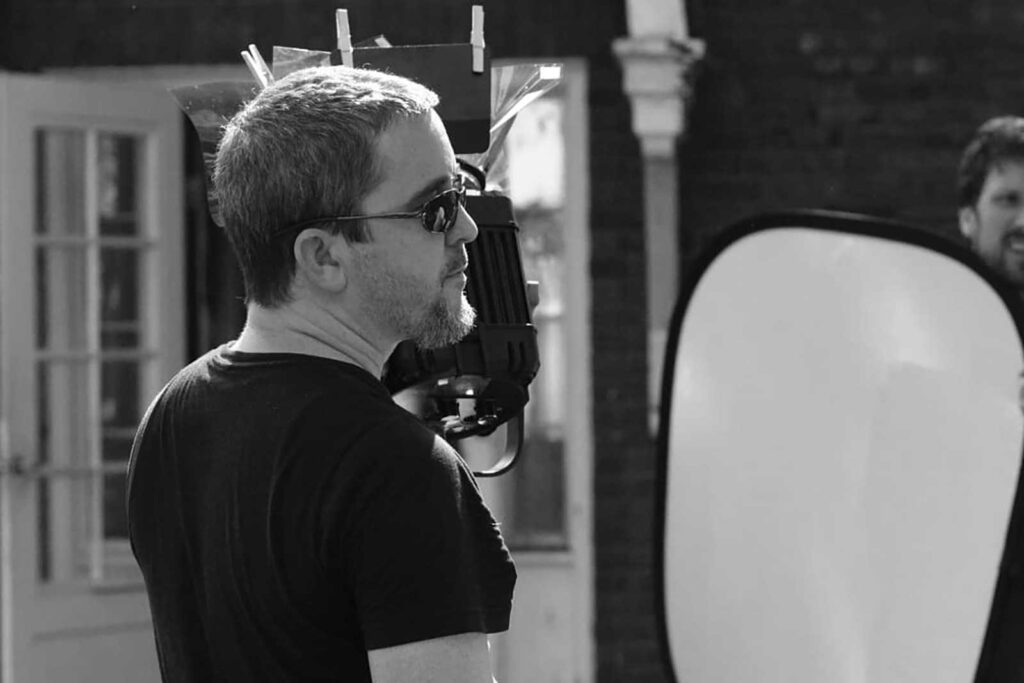
Other jobs/roles in Columbia: Part-time work as a video engineer for Mizzou. Freelance mainly in camera and lighting.
Family/significant other: Wife, Kacey, and two kids.
How much of your craft is self-taught? Most of it. I tell my kids that “figuring it out” is a life skill. There’s a combination of keeping up the technology and getting it all to work together to get your project created. It’s just about keeping an eye on the trends in storytelling and how different people are approaching it.
Describe some of your current projects. Right now, I’m working on directing a short film script that I’ve had for a while. The script is about a single mother that turns her workday into a bedtime story for her son.
The most rewarding part of filmmaking? Getting projects done and having people watch — specifically, hearing them laugh where you wanted them to.
How does our community show its support for your craft? Many people around Columbia are so giving of their time and resources to make things happen. People will offer their house to shoot in, their time to perform, and anything else you could need.
Describe the support and/or collaboration within the filmmaking community. The filmmaking community here is both a close-knit group and larger than you’d expect. There are people around to fill any crew position you could list.
What advice do you have for aspiring filmmakers? Ninety percent of it is showing up. It can be hard to find reliable crew, and those of us who look to hire others will always call the people who show up first. Also, ask questions. Most of us are happy to educate about our craft.
Michael Coleman
Director (narrative films, teaches in film department at MU)
noparkingpictures.com
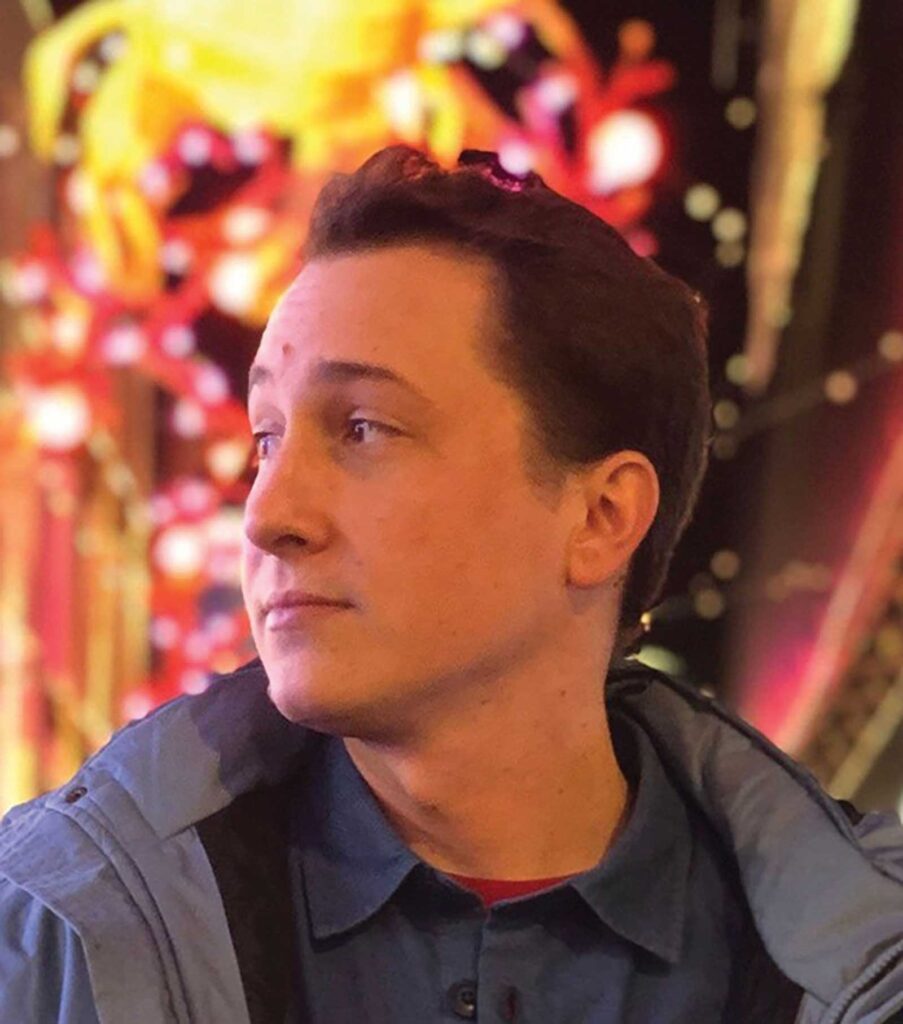
Other jobs/roles in Columbia: Columbia City Channel video producer, Sycamore line cook, bartender, MU professor.
Family/significant other: Wife, Blair Coleman, and son, Holden Rhys.
How much of your craft is self-taught? Everything. My entire film production education was self-inflicted. I’m a firm believer in learning through watching and doing.
Describe some of your current projects. Currently, I’m focusing on being a father more than anything. I made two short films last year — “Walrus,” about a woman posing as a call girl in order to get revenge on a director who wronged her in the past, and “But, It’s My Life,” about a guy who finds a stranger outside his motel room and learns the motel might not be the place he thought it was.
Plans for the future? My plans for the future are to get one of my own feature films off the ground. I’ve produced a handful of features for friends and other collaborators over the past several years, and my hope now is to finally stake my claim as a feature filmmaker by finally getting the chance to take on my own story and bring it to life.
What is your favorite part of filmmaking? Creating art with my friends. I really enjoy the process of being on set, having to use every inch of your brain to come up with creative solutions and bring personal stories to life.
What advice do you have for someone who wants to learn your craft? If you can find a camera or have a phone, you can make a film. You can’t make a film until you decide to turn the camera on and take a creative leap of faith. It comes from a place of pure artistic creation — to get the stories in our heads first onto the page and then hopefully at some point onto the screen, whether big or small.
Lizzie Germann
Director (MOSY documentary, narrative short films, music videos)
elizabethgermann.com
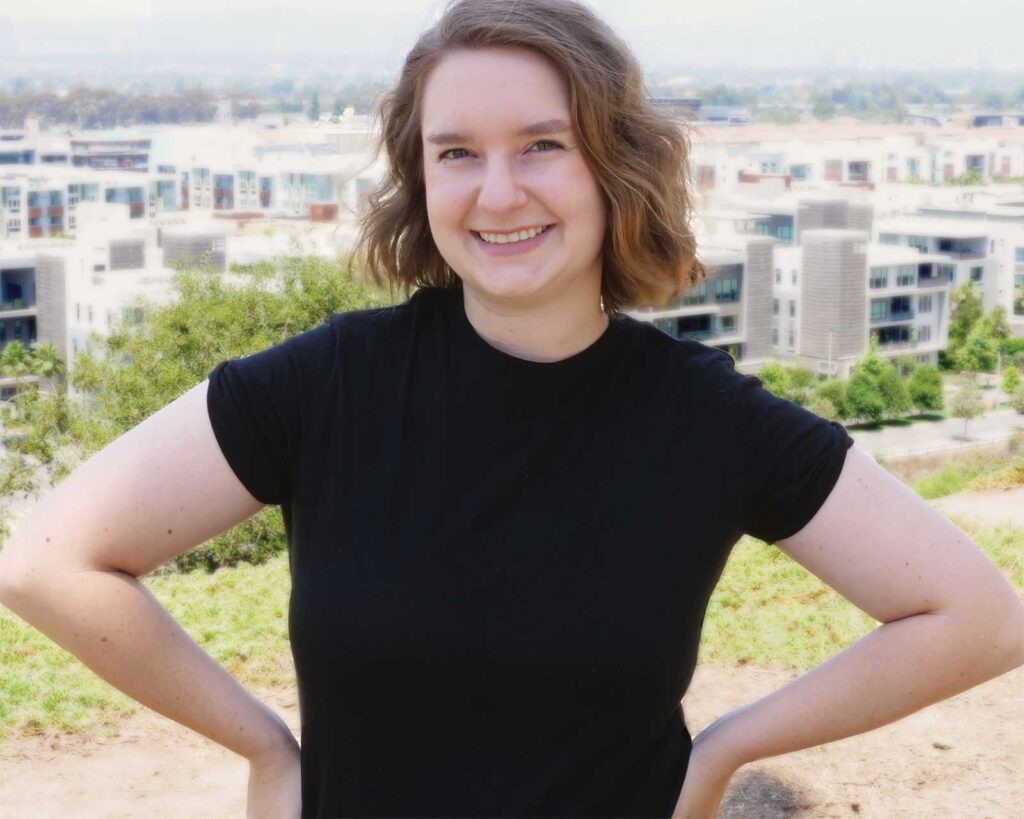
When and how did you get started in filmmaking? The first set I was ever on was part of my film production class at MU with Brian Maurer. In 2013, I studied abroad at the University of Manchester and I created, shot, and edited a short web series with some actors there, which ended up winning the Best Program Award at the Manchester Student Media Awards.
Describe some of your current projects. I’m currently helping Peace Frame Productions edit a documentary on the Missouri Symphony.
How does our community show its support for your craft? I think partly because of the ubiquity of True/False, Columbia seems to feel very positively about filmmakers and films being made in the city. I won the pitch competition at the CoMo Shorts 2019 film festival and the awards included a $200 check from Shortwave Coffee, a membership to Ragtag, and the promise of a screening of my final product at Ragtag.
Describe the support and/or collaboration within the filmmaking community here. Matt Schacht also heads Vidwest, which is a media nonprofit here in Columbia, and Aaron Phillips and I work on the doc in the Vidwest space. Almost every day we’re in there, there’s someone from the community coming in, meeting with Matt and learning about or how to use the gear (video and photography cameras, audio equipment, the space itself) that’s there for them to use.
What advice do you have for someone who wants to learn your craft or to begin making films? A film is only as strong as the team behind it, and if you decide to be the leader of that team, you are taking on a huge commitment. In indie filmmaking, there’s no snobby auteurship: You have to be respectful and you have to listen. All those people on your crew will help you achieve your vision, but only if you make yourself someone they want to work with.
Kevin Duggin
Director, Director of Photography
(narrative films, horror short film)
kevinduggin.com
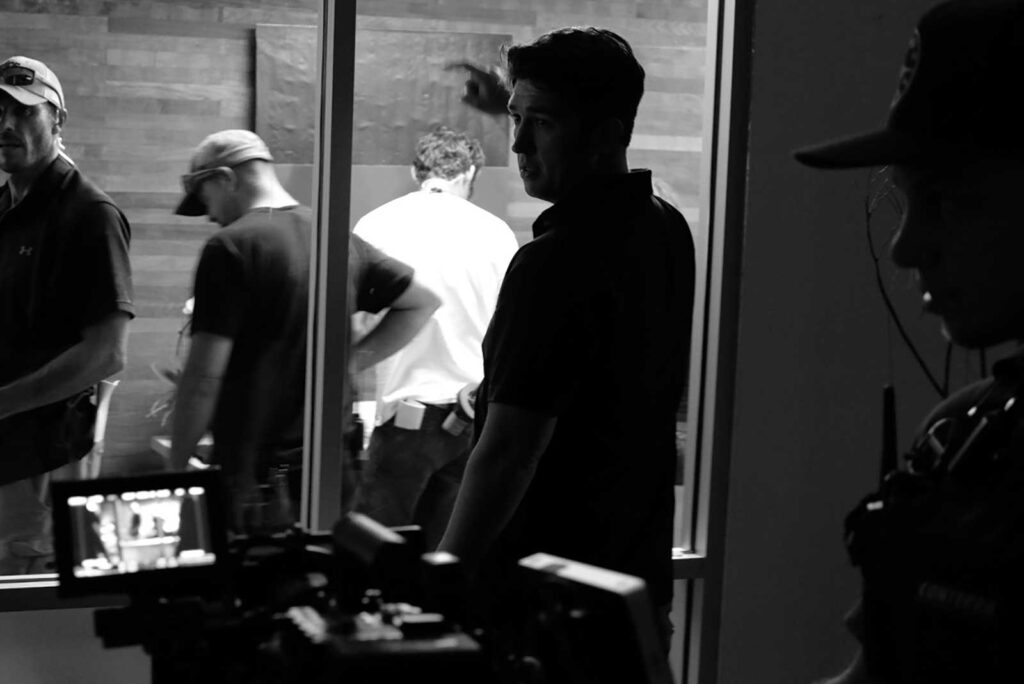
Other jobs/role in Columbia: I work at Spectrum Studios with owner Randy Sinquefield.
Family or significant others:Wife, Josie, and three sons, Stellan, Declan, and Lochlan.
When and how did you get started in filmmaking?I started in middle school. My uncle was a cinematographer in Los Angeles in the 1980s. I loved movies growing up, and he was the bridge to me actually getting started around 13 years old. He gave me my first light meter and I was off to the races.
Describe some of your current projects.I recently completed a feature film as director of photography during the pandemic at the end of 2020. We shot the entire thing remotely using Zoom, and it was a challenge. That film, “Untitled Horror Movie,” was featured in Vanity Fair and is currently being represented by CAA.
What is the most challenging part of filmmaking? The vision versus the cost of production. Sometimes it can be difficult to have grand plans for a shot or a scene but be unable to afford the piece of gear or the perfect location. But on the flip side, dealing with the constraints and coming up with a new, more simplified plan for a scene can be very creatively rewarding.
What advice do you have for someone who wants to learn your craft or to begin making films? When I started doing this, you needed to invest in equipment. Asking your parents for a $3,000 camera at 15 isn’t the easiest sell. But now everyone’s phones can blow that $3,000 camera completely out of the water. Young people have the ability to tell stories with their phones. Just keep making things and eventually you will improve and work your way up.



